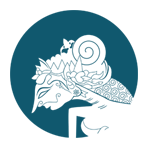Realizing Anti-Corruption Education that Synergizes with the Five Souls of Islamic Boarding Schools
 Country:
Country:
(1) Researcher of Centre for Islamic Economics Studies (CIES), Universitas Darussalam Gontor, Indonesia, Indonesia
(2) Faculty of Business, Karabük University, Turkey, Turkey
Abstract: Currently, the role of Islamic boarding schools has a very significant impact on advancing education in Indonesia. Amidst the moral decline of the millennial generation and the bad behavior of corruption from bad officials, education is an important aspect that needs to be highlighted. Armed with moral and mental instillation in Islamic boarding schools, it is hoped that it will produce the next generation who are anti-corruption and carry out the mandate properly. This research method uses the literature review method by reading primary and secondary literature on anti-corruption attitudes that synergize with the five souls of Islamic boarding schools. The results of this study explain that pesantren education can produce an anti-corruption generation based on the five aspects of the five souls of pesantren, namely sincerity, simplicity, self-sufficiency, ukhuwah Islamiyyah and freedom. The principles taught at Islamic boarding schools enable them to function as a stronghold and offer resources to its graduates so they can uphold the principles they have acquired.
Keywords: anti-corruption education, five souls, islamic boarding school, education.
Zarkasyi, A. S. (2005). Gontor dan pembaharuan pendidikan pesantren. PT Raja Grafindo Persada.
Aclc.kpk.go.id. (2024). Korupsi-dan-kerugian-keuangan-negara-yang-ditimbulkannya. Retrieved from https://aclc.kpk.go.id/aksi-informasi/Eksplorasi/20240229-korupsi-dan-kerugian-keuangan-negara-yang-ditimbulkannya
Cibro, A. N., & Salminawati, U. (2023). Modern pesantren: The politics of Islamic education and problems of Muslim identity. Al Qalam: Jurnal Ilmiah Keagamaan dan Kemerdekaan, 17(2), 800–815.
Andrian, S., Nisa, A. K., Mulyasari, N. T., Rahmanto, A., & Oemardhi, N. F. N. (2022). Milenial bicara anti-korupsi: Media and youth anti-corruption movement. Indonesia Media Law Review, 1(2), 165–198.
Bahoo, S., Alon, I., & Paltrinieri, A. (2020). Corruption in international business: A review and research agenda. International Business Review, 29(4), 101660.
Bhandari, M. P. (2023). The corruption a chronic disease of humanity: Cause, effects and consequences. Scientific Journal of Bielsko-Biala School of Finance and Law, 27, 13.
Channiago, E., Gomang, J. H., Cahyani, I. F., Ginting, F. T., & Isnin, H. (2022). Media and character education in preventing corruption in Indonesia: The future challenges. Indonesia Media Law Review, 1(2), 199–230.
Darimus, D. (2017). Fungsi lembaga-lembaga dalam pelaksanaan otonomi di bidang pendidikan: Telaah atas kelembagaan dan SDM. Al-Fikra: Jurnal Ilmiah Keislaman, 5(2), 227.
Dewantara, J. A., Hermawan, Y., Yunus, D., Prasetiyo, W. H., Efriani, E., Arifiyanti, F., & Nurgiansah, T. H. (2021). Anti-corruption education as an effort to form students with character humanist and law-compliant. Jurnal Civics: Media Kajian Kewarganegaraan, 18(1), 70–81.
Anggadwita, G., Dana, L. P., & Ramadani, V. (2021). Empowering Islamic boarding schools by applying the humane entrepreneurship approach: The case of Indonesia. International Journal of Entrepreneurial Behavior & Research.
Management, P. E. (2024). Globalization and management of pesantren: Reading the aspirations of stakeholders. 02(01), 645–654.
Mulyadi, M. (2022). Islamic education based on the nature of personality and the potential of the human soul. Edukasi Islami: Jurnal Pendidikan Islam, 11(2), 489–506.
Nuha, U. (2016). The role of Pondok Pesantren in encountering ASEAN economic community (AEC). Addin, 10(2), 365.
Azizah, N. (2022). Models of learning Bahasa applied in high school level: A literature study. Research in Education, Technology, and Multiculture, 1(1), 29–33.
Putra, N. R., & Linda, R. (2022). Corruption in Indonesia: A challenge for social changes. Integritas: Jurnal Antikorupsi, 8(1), 13–24.
Raco, R. (2010). Metode penelitian kualitatif, jenis, karakteristik dan keunggulannya. PT Gramedia Pustaka.
Rahmansyah, I. T. (2023). Pesantren and community development. Jurnal Syntax Transformation, 4(11), 192–205.
Rasyiddin, A., Ridha, A., & Fatimah, F. (2022). Implementation of the five principles of personality through programs and activities of students at Pondok Modern Darussalam Gontor. Ahlussunnah: Journal of Islamic Education, 1(2), 75–83.
Rohmawati, T., Deliarnoor, N. A., Redjo, S. I., & Rahmatunissa, M. (2024). Organization regarding Islamic boarding schools in function encouraging the community in the digital era. Atlantis Press SARL.
Sugiyono. (2013). Metode penelitian kuantitatif, kualitatif dan R&D. Alfabeta.
Supriyanto, S., Amrin, A., & Rifa’i, A. A. (2022). Islamic education paradigm on religious understanding in Indonesia: A case study at Islamic boarding school of Al-Muayyad Surakarta. Akademika: Jurnal Pemikiran Islam, 27(1), 31.
Syamsuri, S. (2016). Pembangunan ekonomi dalam perspektif Islam: Satu analisis pesantren Gontor dalam memberdayakan ekonomi masyarakat. Islamic Economics Journal, 2(1).
Tacconi, L., & Williams, A. (2020). Corruption and anti-corruption in environmental and resource management. Annual Review of Environment and Resources, 45, 305–329.
Winata, M. N., Jesica, N., & Septiyati, L. (2018). The realization of social justice for the poor citizens according to legal philosophy. FIAT JUSTISIA: Jurnal Ilmu Hukum, 12(4), 284.
No supplementary information available.
Refbacks
- There are currently no refbacks.

This work is licensed under a Creative Commons Attribution-ShareAlike 4.0 International License.
The copyright is reserved to Research in Education, Technology, and Multiculture that is licensed under a Creative Commons Attribution-ShareAlike 4.0 International License.
Address:
CV. IMRECS: Jalan Gagak I, Kecamatan Larangan, Kota Tangerang. Postal Code: 15155
STKIP Al Islam Tunas Bangsa: Jalan Z.A. Pagar Alam No. 41 Gedong Meneng Bandar Lampung





